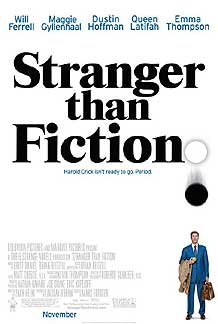Dreams are a lot of things, many of them inexplicable.
Sometimes they’re wish fulfillment – why, yes, thank you, I would like to take that very large check and go purchase my own tropical island complete with fresh water and airport! Oh, and look, Angelina’s here without Brad and the kids. How convenient!
Sometimes they’re your conscious mind’s way of getting out impulses you otherwise couldn’t act upon – shall we discuss my screaming in staff meetings dreams now? No? Good.
Dreams can sometimes be just your brain taking out the garbage – then there was that time that I dreamed I was a fluffer on a g@y p*rn movie and our star was one of the particularly odious male cylon models from Battlestar Galactica. This one required professional analysis.
Sometimes dreams connect me with the creative impulse bringing ideas, stories, and characters – indeed, this is how got the idea for my second novel, asleep in a weird little hotel room in Chicago, one where the bathroom, where I actually had to go at 4am to write down said idea, was actually as big as the bedroom.
I’m not sure how the dreaming process works. Experts will tell you that you dream whether you remember your dreams or not. I’m not entirely convinced this is true. I’ve spent months not remembering my dreams and now that they are back they’re weirder, and more inappropriate to my current life, than ever. I think, perhaps, that my brain has been storing them up, waiting for a time when I could get some utility out of them. There is no other reason why I’d be dreaming about a job I haven’t been at since July, at least no other reason that I can come up with.
It’s funny, though, isn’t it, that we refer to this unconscious process, this wish fulfillment/taking out the garbage/connection to the creative impulse thing that our subconscious does pretty much automatically with the same term that we use to describe ambition. Maybe this is a recognition that we often have ambitions we don’t understand, or ones that come to us inexplicably.
Dream interpretation, too, is a huge complicated business, almost as huge and complicated as astrology, started by Sigmund “I’m so neurotic I can’t even go to the graveyard where my father is buried” Freud. Dream analysts will tell you that certain objects or sequences have certain meanings. One site I looked at gave a flat interpretation of dreaming about a shack as a need for self improvement. I don’t know: if I’m dreaming about a shack on a beautiful beach and there’s a warm breeze blowing I’m not sure it gets much better than that so what’s to be improved?
All this thinking about dreams comes from a particularly vivid one I had last night. It is rare that I remember my dreams fully, even when unmedicated which I haven’t been in a while, and even rarer still that I remember the feelings, textures, sounds, and smells from a dream (sometimes this is a good thing (reference: fluffer…cylon)). Last night, though, was different.
Last night I dreamed I was working on a film editing and restoration project for Marianne Faithful. All the bits of film were of Melissa Etheridge, various pieces of concert footage, interviews, career spanning sort of stuff. And it was actual, honest to god film with sprockets and a celluloid layer and a soundtrack stripe down the side.
Marianne’s house was welcoming, bohemian and eclectic, filled with Victorian furniture and bounded by windows framed with heavy, velvet drapes. There was always the smell of something tasty permeating the air and someone willing to make a nice cup of tea or provide any other beverage that was needed. It was relaxing, the kind of place you’d want to just hang out for a weekend.
I walked into the dream, and the house, knowing I’d been working on the project for at least six weeks, that it was no where near completed, and that I was doing a damn fine job.
Arriving for work that day, I found instead of my employer, reading as she was wont to do (I have no idea if Marianne Faithful reads for pleasure or not) and waiting for her daily screening/update, a nice note written in extremely well formed cursive congratulating me on a job well done, saying the project was being terminated, and extending thanks and payment in the form of a check with a very large number on it, a generation and form of iPod that doesn’t yet exist, and a sampling of personal memorabilia, both from her and The Rolling Stones, worth a fortune.
Now where the hell did all that come from? I never made any promises that the thoughts that come unbidden would be coherent, either.


